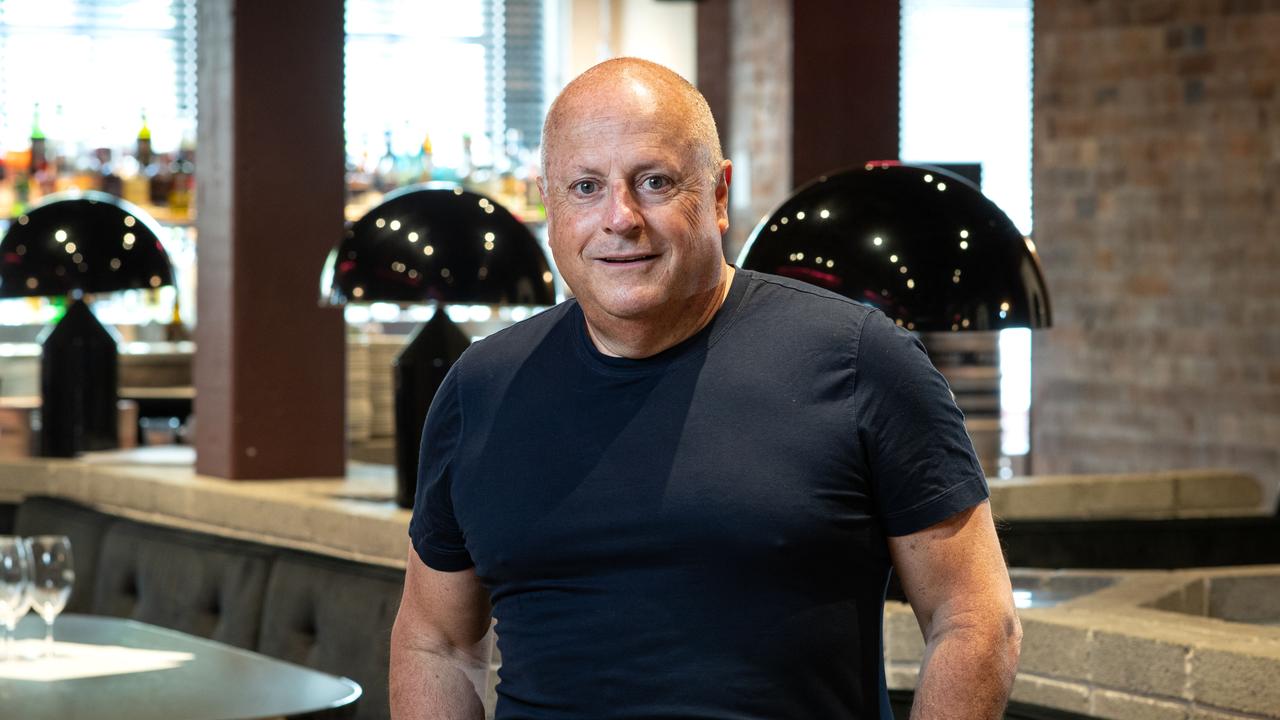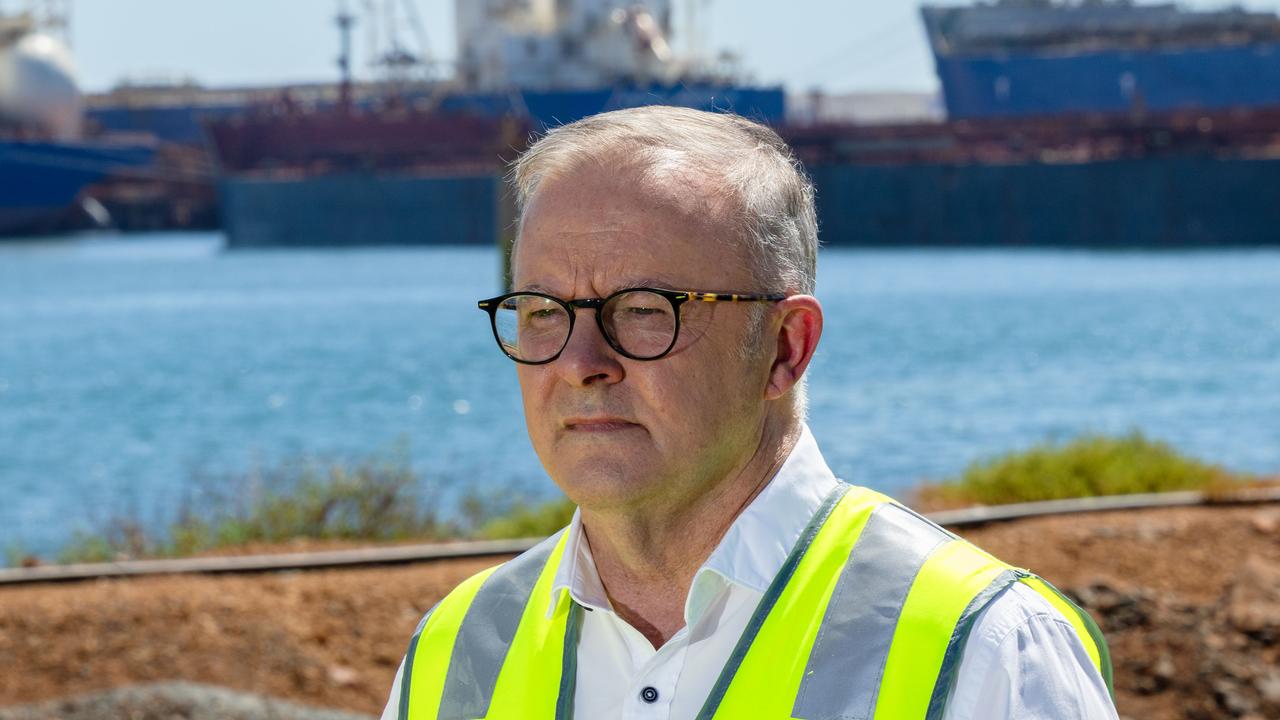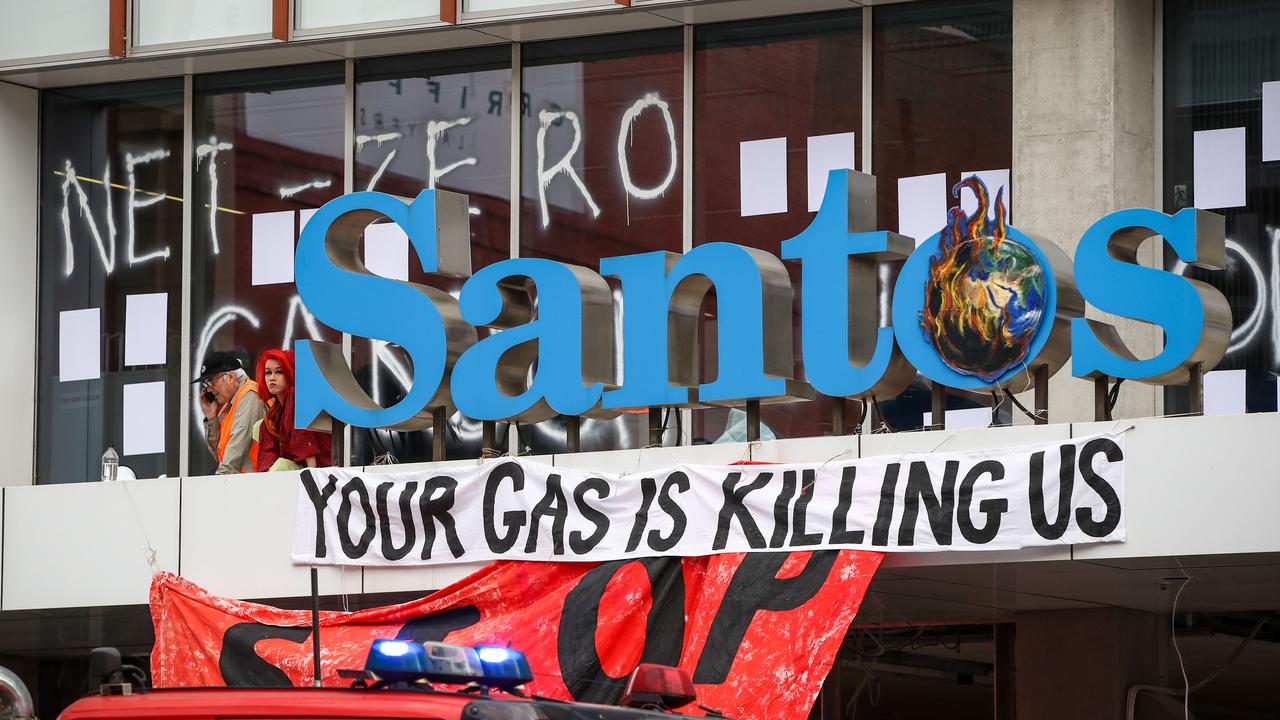Washington H. Soul Pattinson: The fund manager building a private bank
Investment house Washington H. Soul Pattinson takes a different view to the disruption sweeping global markets.
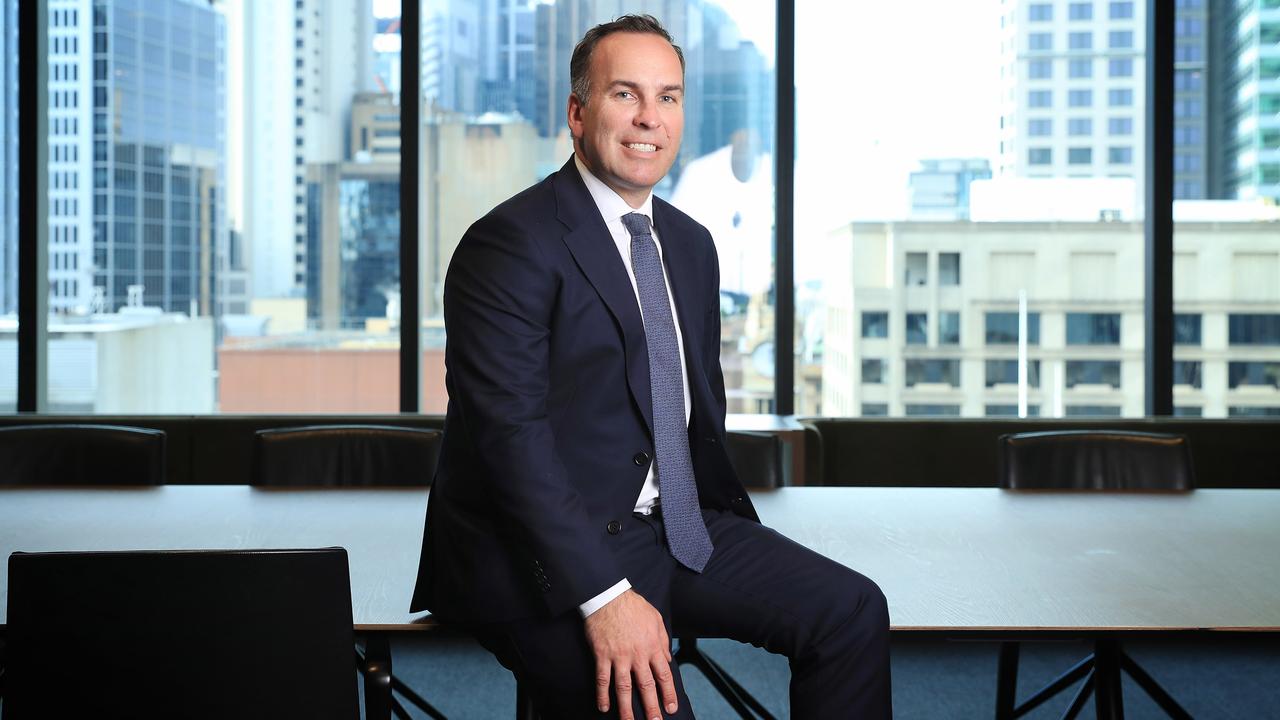
Business
Don't miss out on the headlines from Business. Followed categories will be added to My News.
Investment house Washington H. Soul Pattinson takes a different view to the disruption sweeping global markets.
Chief executive Todd Barlow sees only opportunity in front of him with shares having been heavily marked down and interest rate rises closing toward their peak. It means we’re starting to enter a stock pickers market.
Washington has spare cash reserves of $600m and combined with liquid assets that could push its investment firepower into the billions of dollars if the right opportunity came along, Barlow says.

Washington’s share portfolio had already been defensively positioned going into the current bearish market selling down holdings in the big four banks in particular which has helped the fund outperform the market including navigating a rocky February and March.
The merger with $3.5bn listed investment fund Milton 18 months ago means Washington now has serious capacity, directly overseeing a $10.5bn funds portfolio. Half of this is tied up in “strategic” investments or the are outsized, but long term bets the Millner family that controls Washington has made. This extends to cornerstone stakes in companies including TPG Telecom, Brickworks and coal miner New Hope. Then there’s another $3bn in large cap equities with holdings in Macquarie, BHP to Woolworths
However it is beyond equities where Barlow is really planning to drive Washington’s growth. There’s increasing exposure to private equity, but it is in private credit markets where the momentum is.
Here Barlow and his team have poured nearly a billion dollars into private credit over the last four months alone. That’s a combination of direct lending to businesses or funding non-bank lenders. This shift was already underway before global money markets became stressed on the back of issues like Credit Suisse’s demise of the regional banking crisis unfolding in the US.
These money market stresses have “opened up the opportunity for non-bank lenders and for private credit,” Barlow tells The Australian. “That market is only getting better and the pricing is getting better. What we’re seeing with banking issues globally is the pricing of risk is increasing,” Barlow says.
And while not a bank, Washington approaches the risk differently, putting a fund managers over assessing borrowers.
“We look at them from an equity point of view. Is this a company that we would be happy to own the equity? If you’re happy to own the equity, you should absolutely be happy to own the debt. In the normal course of events, debt is only impacted when equities are completely wiped out,” he says.
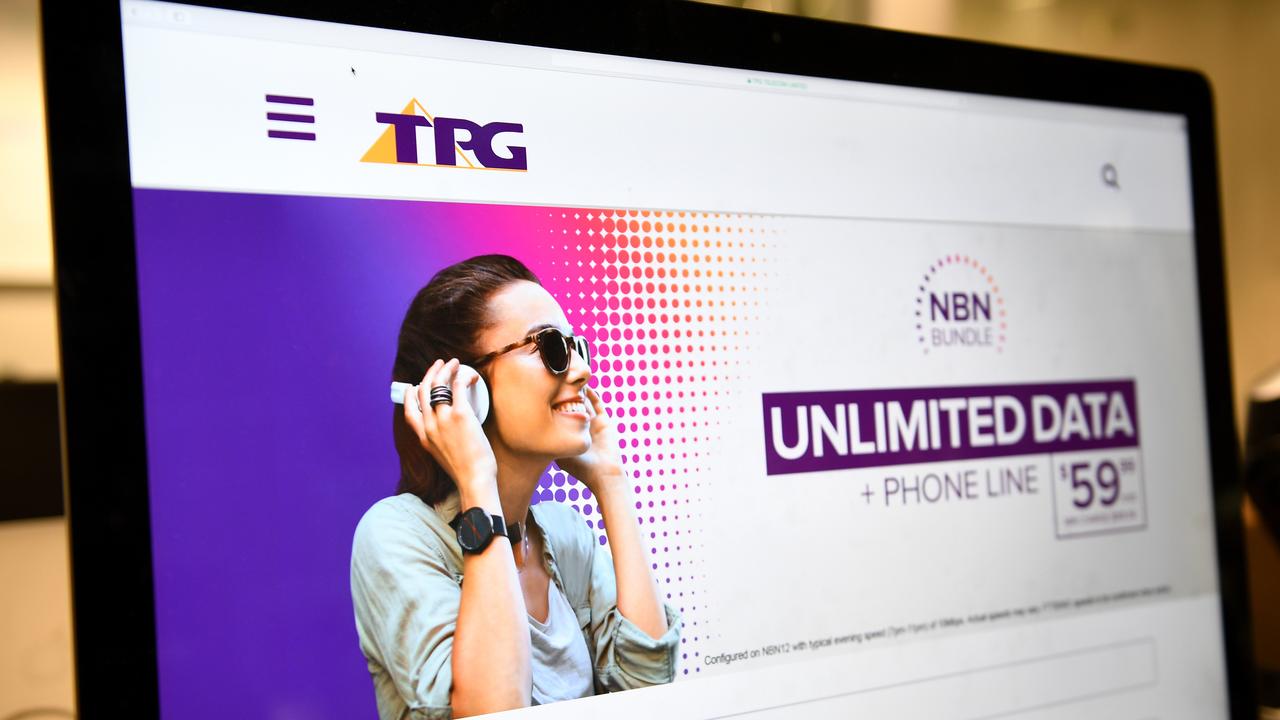
He was speaking as Washington posted a first half profit of $453m, that’s a $1.1bn turnaround from last year’s costly writedown of goodwill following the merger with Milton. Its interim dividend of 36c a share fully franked jumped from 26c this time last year and continues a more than two decade unbroken run of dividend increases for the investment house.
In equities Washington had been pulling back on bank and mining exposure over the past six months, selling down holdings as interest rates were rising and markets were getting more volatile. This included holdings in Commonwealth Bank, Bank of Queensland and Woodside. Elsewhere it has picked up positions in Coles and education provider IDP. At the same time Washington has been adding to holdings of Macquarie Group for the growth potential.
Washington’s head investments Brendon O’Dea – the former CEO of Milton – is comfortable being underweight retail banks given the positioning of the economy.
“We do recognise the cycles can turn quickly. So if we were to see a change in the interest rate, or anything that suggested that we were through this period of potential recessionary activity in developed economies, we may change our mind,” O’Dea says.
TPG playbook
The under-the-radar telco venture of TPG billionaire David Teoh is about to make its biggest mark yet as it replicates the broadband attack playbook he developed in Australia.
The ASX-listed TUAS is preparing to launch half-priced fixed broadband packages in Singapore to build on the 5G network Teoh’s telco start-up is rolling out on the island nation.
The $S20 ($22.40) monthly broadband plan offers twice the data (2.5GB) at half the cost of the dominant telco SingTel – owner of the Optus brand here in Australia.
The broadband offering uses Singapore’s already established NBN network, so there are fewer teething problems in the ramp up of fixed broadband compared to the early days in Australia. However, Teoh is following a strategy in Australia where TPG was deeply undercutting giants Telstra and Optus to hit critical mass as quickly as he could.

TUAS came about from the demerger of TPG’s portfolio of 5G spectrum in Singapore. This followed the combination of TPG and Vodafone in Australia. Teoh, who has a 35 per cent stake, is building the business from the ground up, which operates on the island under the Simba brand.
Teoh’s stake in TPG was diluted to 14 per cent following the Vodafone deal, and he is no longer involved in the company. However, he continues to be a thorn in the side of SingTel, now turning his attention to the Asian telecom giant in its home market.
The normally reclusive Teoh says the strategy is all about simplicity and this is helping to keep costs down.
“We only have 1 product, one plan … it’s very simple for the sales and marketing team to do the job. So we keep overheads low and costs low. So it’s a good product, simple and easy,” he says.

Teoh says he is “retired” from the Australian telco market and won’t be drawn on it but regards Singapore as a competitive market with “a lot of opportunity”.
TUAS is still burning cash as it ramps up the rollout of its 5G network, but at the current run rate it is expected to be cash positive by financial year 2024. Latest accounts show net loss narrowed to $S7.5m from a loss of $S13.4m a year. However, underlying earnings jumped to $S14.3m from $S6.3m as revenue also increased.
Most of the costs are upfront, building out of the 5G network across Singapore. TUAS expects to hit 60 per cent 5G coverage by the end of this calendar year. Under the rules of its spectrum acquisition, TUAS needs to hit 95 per cent within the first five years of rollout.
The telco is just about to pass 700,000 mobile subscribers, which it has also been building market share through ultra-discounted plans. This time a year ago, it had 487,000 customers. As part of the push, the telco has been targeting Singapore’s big cross border communities, including Malaysians that live on the island and make more frequent trips home. This allows Simba to sell a number of add-ons, such as global roaming, that helps to boost average revenue per user.
Teoh has a 35 per cent stake in TUAS, and listed fund Washington H Soul Pattinson has a 25 per cent stake in the telco start-up.
Latitude CEO shift
For any company a cyber attack is devastating, but for non-bank lender Latitude Group the timing couldn’t be worse. Ahmed Fahour, who saw Latitude to a listing in early 2021 is scheduled to retire at the end of next week. A new chief executive Bob Belan had already been named to start on April 1. Belan is being briefed on the events, but he needs to bring forward the start date by a week, including showing he is in front of the big calls now around Latitude’s cyber crisis. Another week will see him on the back foot for months.
As Medibank has shown, how a company responds to a cyber attack can make or break its longer term prospects. The demands on Medibank boss David Koczkar in the early days of his healthcare company’s cyber attack were extreme but the messaging to customers was consistent. Medibank was able to contain the loss of customers to one quarter following the attack and latest numbers show it is growing with the market again.
Last week Latitude said some 330,000 current and former customers as well as applicants have so far been impacted by the cyber breach with personal data stolen. Most of this extends to actual copies of drivers licences or licence numbers. Some had passport details stolen and a small number had Medicare numbers. It is likely that the total number of customers impacted will increase as Latitude prepares further updates. Latitude has seen its shares lose 6 per cent after coming out of the trading halt. Belan joined Latitude in November 2021 as a senior executive following the acquisition of Symple Loans.
johnstone@theaustralian.com.au
More Coverage
Originally published as Washington H. Soul Pattinson: The fund manager building a private bank






